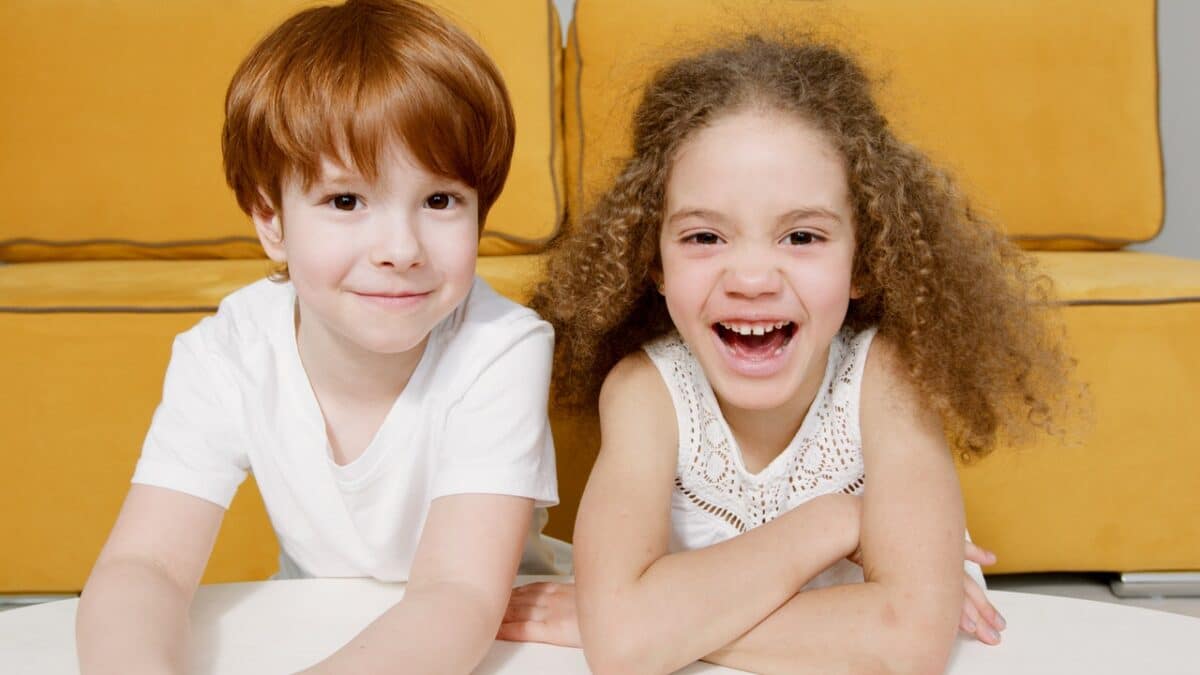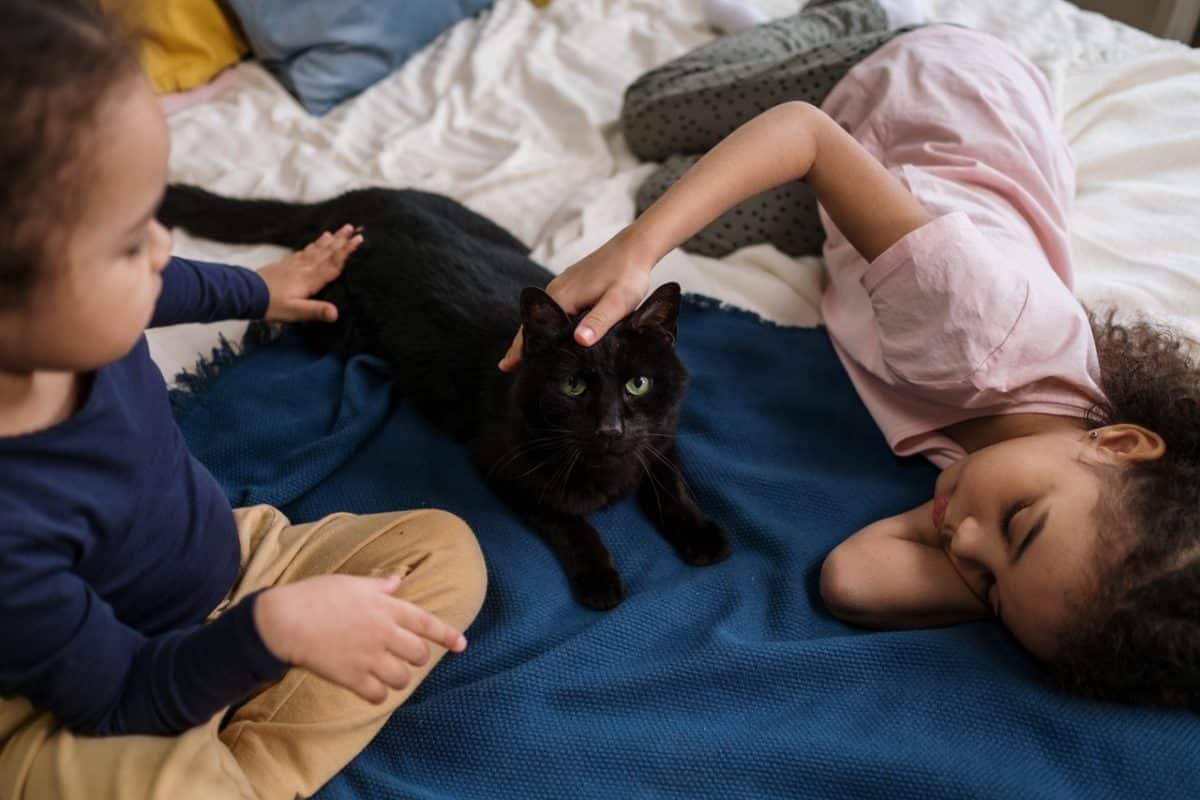A legal and psychological guide to the effects of separating siblings
Head of Family Law in the ACT, Courtney Mullen, sat down with Amy McGinn of Breath Mediation & Counselling Services to discuss the psychological effects of separating siblings after divorce.
Families come in all shapes and sizes these days, with a nuclear family being rare. This means that following a relationship breakdown, the impact on a family is wider-reaching.
It also makes sense that those considered siblings may be broader too, including step-siblings, half-sisters/brothers and even fur-siblings!
What should you do if two or more children want to stay with different parents?

Children’s views may be a relevant consideration, not just in parents’ eyes but also as a consideration of what is in their best’s interests by the Court. As a child gets older and more mature, the Court will place greater weight on their wishes about their living arrangements.
It is important to remember that children can feel a split in loyalty to their parents. This split is often in silence and made in confidence with their siblings. Children in some circumstances can become the unconscious carer of their parents by agreeing to each live with the other, so no one is alone.
If your children are expressing that they wish to live in different homes, Amy recommends that creating space for your children to discuss what it feels like for them in this moment of time will assist in how decisions ahead are formed.
However, separating siblings is not the answer and should be avoided.
The psychological effects of the separation of siblings

For children, there are few events as traumatic as being separated from your family. Moreover, these emotions are likely to be exacerbated by the uncertainty surrounding the separation.
Unquestionably, research shows that the emotions experienced can disrupt how your child regulates their emotions, which can play out into their adult life if not managed.
The three most common psychological effects are:
- Loneliness
- Stress
- Split loyalties
Family law and separation of siblings: What is the Court’s view?
Under the Family Law Act, one of the ‘best interests’ considerations that a Court needs to look at in making parenting orders is the “likely effect of any changes in the child’s circumstances, including the likely effect on the child of any separation from any other child.”
The bond the siblings share is widely recognised as an important element of children maintaining resilience through the separation of their parents. This is why it is generally assumed that children will benefit from remaining with their siblings, unless separation appears, in all the circumstances, to be in their best interests.
While there may be no alternative but to separate siblings in some circumstances, the majority of case law supports children residing together where possible.
Cases where it might be seen as being in the best interests of the children to separate siblings include:
- Where the children don’t get along with each other;
- Where the is a large gap in the ages of the children;
- Where children have different cultural needs;
- Where children are already separated and are happy and have adjusted to their existing surroundings;
- Where the circumstances of either parent alone prevent them taking care of all the children;
- Where one parent has difficulty controlling and caring for certain of the children and the other parent would be better able to perform this task; or
- Where one child, particularly a child of mature years, expresses strong wishes to be with one parent.
If there is a proposal by one parent to separate siblings, it may be cause for the appointment of an Independent Children’s Lawyer.
So, what does this mean for you?

We’ve put together some tips for you to ensure that you and your former partner can work together and put the needs of your children first.
1. Share the same goal: an arrangement that is in your child’s best interests
Find common ground early. If you frame your suggested parenting arrangements around what is best for your children, you will find that the discussion becomes a child-focused one, rather than one about what is more convenient or better for the parents.
2. Have a separation story
Agree on what you tell the children. “Research shows that the more exposure the children get to the separation issues and the conflict between parents, the worse it is for children.
The less exposure children have to conflict and the details of their parents’ relationship breakdown, the better they do.” says Amy.
A separation story is a gift you can give to your children to assist them in how they make sense of the ‘why’ their parents are no longer together. The gift is the message that your children hear that may sound something like, ‘although this is all new and there might be more changes to come yet, the one thing we know that will never change is the love we both have for you’.
Amy’s tips for your separation story include:
- Keep the separation story simple and age-appropriate.
- Be clear on the message that you want the children to hold onto.
- Use joining words such as our and we. When children hear these words, they feel reassured that their parents can still keep them feeling safe and secure despite all the changes.
- Be honest by saying, ‘sometimes parents don’t have all the answers, which is why we talk to other adults to help us’.
3. Still make one-on-one time for your kids
While living arrangements that separate siblings are not ideal, Amy endorses you as a parent, making time to bond with your children as their own people. “Take time to observe, listen and reflect on how it feels for your children at this moment, as they too are adjusting to change,” she says.
Providing opportunities in your parenting agreements for the children to enjoy one-on-one time with each of you is important. Children are learning how to develop a relationship with each parent respectively in the separated space, which is not too dissimilar to how you are experiencing parenting separately.
4. Together is better
If you can avoid separating siblings, do. Amy says that children are experts at worrying together. Whilst they might not always articulate the worry, their nonverbal actions provide comfort and reassurance. Together they shape their regulatory system in how they cope with the stressors of the separation.
If you need some help with your post-separation parenting arrangements or are concerned about the psychological effects of separating siblings, reach out for some expert advice.
Do you have a question about family law or relationship law?
Call now 03 9088 3184
If you would prefer an Australian Family Lawyers team member to contact you, complete the form below.



